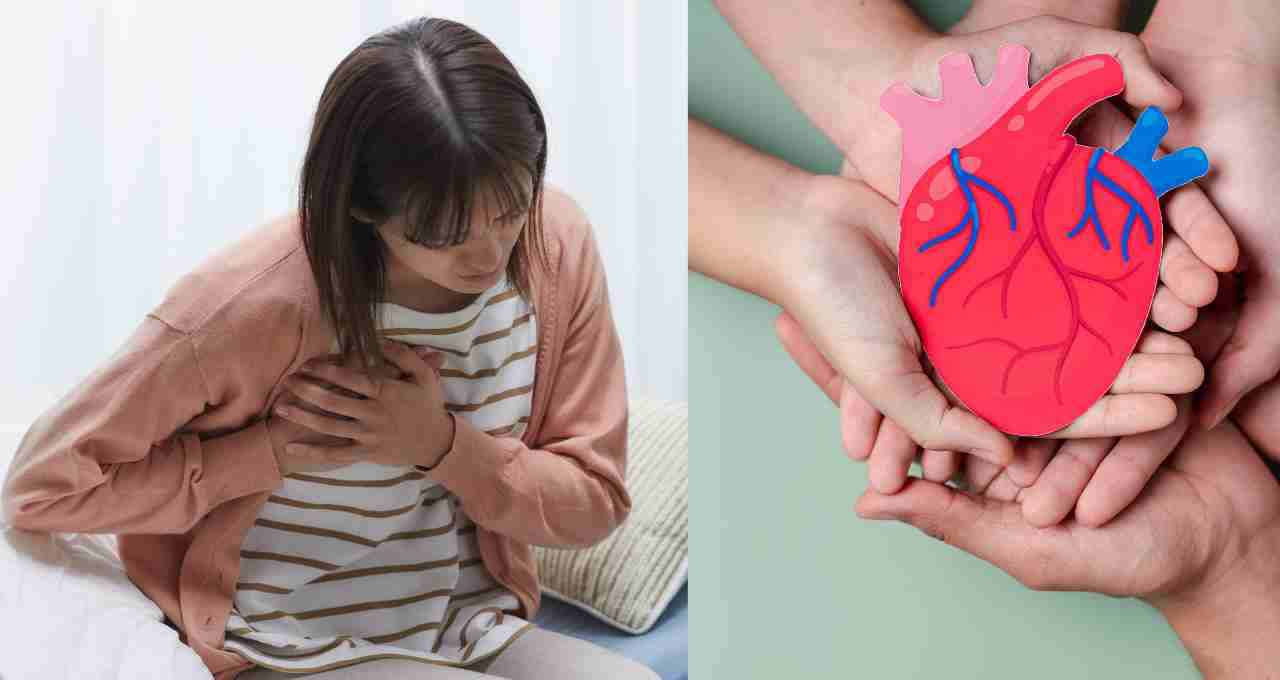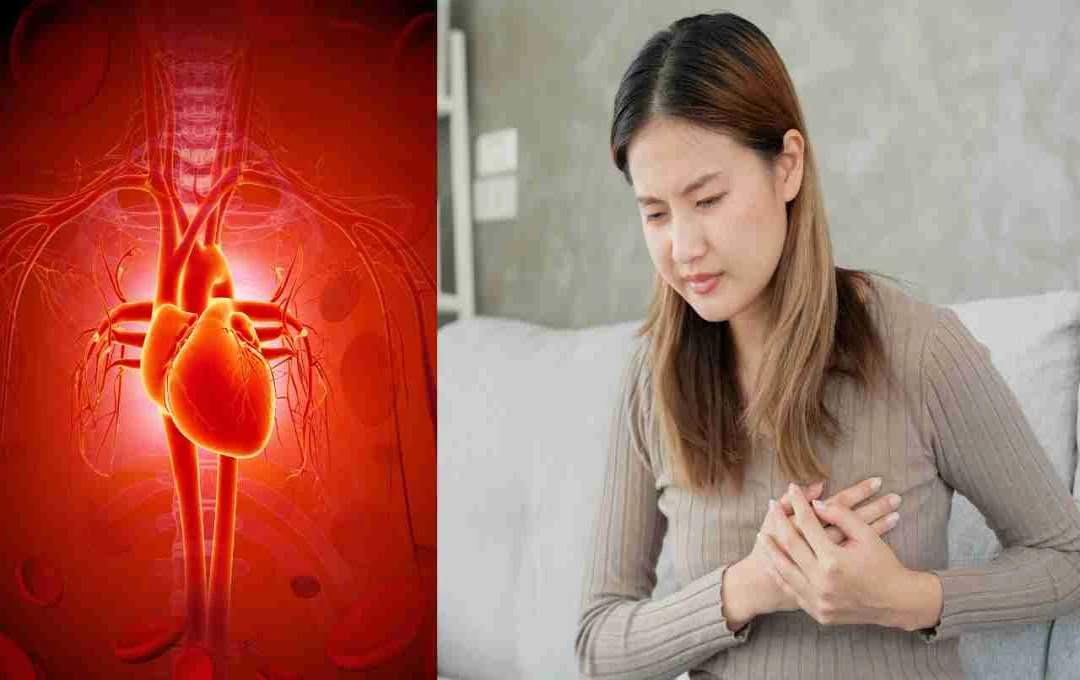Symptoms of heart attack in women can differ from those in men. Shortness of breath, nausea, pain in the back or jaw, dizziness, and extreme fatigue can be early signs. After the age of 40, women should focus on a healthy diet, regular exercise, adequate sleep, and stress reduction to lower the risk of heart attack.
Heart Attack: Due to rapidly changing lifestyles, increasing stress, and irregular eating habits, the cases of heart attack in women are rising rapidly. Especially after the age of 40, hormonal and physical changes increase the risk. Symptoms of heart attack in women can differ from men, such as shortness of breath, nausea, pain in the back or jaw, dizziness, and extreme fatigue. Experts say it is crucial to recognize these signs on time and adopt a healthy lifestyle.
Common Symptoms of Heart Attack in Women
The symptoms of heart attack in women can be different compared to men. Generally, shortness of breath is the first symptom observed in women. Along with this, complaints of nausea and vomiting are also frequent. Sometimes, pain in the back or jaw, dizziness, and mild to severe pain in the lower chest or upper abdomen can also be an indication of a heart attack. Feeling of extreme fatigue is also included among its early symptoms.
Experts explain that these symptoms in women are often ignored as common health problems. Consequently, the condition can become serious if timely treatment is not received.
Risk in Older Age

The risk of heart attack in women increases significantly around the age of 40. Hormonal changes, menopause, and physical transformations with aging increase the risk of heart-related diseases in women. After the age of 35-40, it becomes extremely important for women to pay attention to their physical and mental health.
Lifestyle Changes are Necessary
Experts state that making lifestyle changes is vital to prevent heart attacks. Women should consume a balanced and nutrient-rich diet. Fresh fruits and vegetables, foods with less oil, and avoiding junk food are beneficial. Regular exercise and light walks strengthen heart function. Maintaining a controlled weight also reduces the risk of heart attack. It is important to take care of mental health. Yoga and meditation reduce stress and decrease the pressure on the heart.
Getting adequate sleep is also essential for heart health. According to experts, sleeping at least 8 to 9 hours at night is beneficial for the heart.
Importance of Diet and Exercise
To reduce the risk of heart attack, women should adopt a healthy diet. Consuming low-salt and low-oil food, green vegetables, fruits, and adequate water is important. Regular exercise helps control blood pressure and cholesterol.
To reduce stress, women should practice daily meditation and light physical activity. This strengthens the heart and reduces the risk of heart attack.
Ignoring Early Signs is Dangerous
The early signs of heart attack in women are often ignored. People do not consult a doctor, considering complaints like shortness of breath, mild pain, fatigue, and nausea as normal. Due to this, the condition can become serious if timely treatment is not received.
Experts say that every woman after the age of 40 should take any unusual changes in her body seriously. Getting regular heart check-ups can prevent serious diseases.















